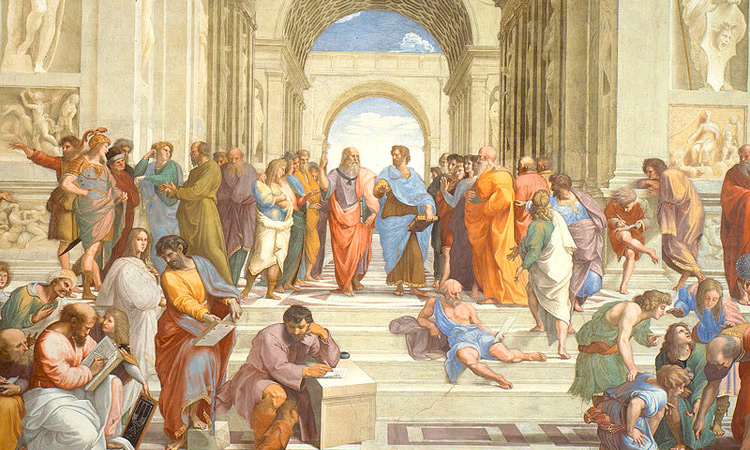Perhaps there comes in a time in every life—perhaps mid-life—when you stop and, as a Peggy Lee song of a certain vintage goes (those of us of a certain vintage will recognize): Is that all there is?
James O’Toole, the Daniels Distinguished Professor of Business Ethics at the University of Denver’s Daniels College of Business, was struck in his fifties by questions and doubts; conventional definitions of the good life, he says, seemed wanting in meaning, purpose, and practicality.
O’Toole drew upon Greek philosopher Aristotle’s 2,500-year-old principles to understand how to lead a good life—and create a good society—for true fulfillment.
In Creating the Good Life: Applying Aristotle’s Wisdom to Find Meaning and Happiness, O’Toole notes the importance of first critically examining the nature of our desires, and understanding what’s truly a component of the good life and how these fit into the concept of a good society.
So, what is the good life?
Champagne wishes and caviar dreams? At least that’s what Robin Leach of Lifestyles of the Rich and Famous used to cheerfully utter at the close of each show featuring decadent, glittery lifestyles.
But does the good life really mean lots of money, career success, a big house? Perhaps to some, but what would Aristotle say? Not necessarily so, O’Toole says, adding that “those who are happiest at the end are the ones who are able to look back on a full life of having exercised their many innate capacities”—and having realized their full potential.
So, how do we get there? First, O’Toole suggests first taking our own temperature: “Where am I searching to find happiness? What are the main lines of resistance I habitually use when confronted with new ways of thinking that challenge my basic assumptions and upset my comfort level? Are those mechanisms in fact useful, or do they keep me from considering other, possibly more promising, ways of finding true happiness?”
Come on, get happy
O’Toole says “Aristotle’s highest good, eudaimonia, has little to do with the feelings of pleasure and contentment typically implied in modern usage of the word happiness. In fact, what he means by happiness is something like the deep sense of satisfaction one gets when one grows as a human being.”
And while “Aristotle might appear anti-business….he is simply pro-stretching ourselves. Instead of doing what we have always done, instead of making an extra buck, writing yet another academic article, playing another round of golf, he encourages us to try new things, learn new skills, and learn about new places and new people.”
A corporate executive, for example, O’Toole says, might quit business to become a sculptor; and “each of us must pursue happiness in our own way.”
The deathbed test
Aristotle recommends people in midlife extrapolate forward to the end of their lives to assess if they are effectively pursuing happiness now. “Aristotle’s test of whether a person has led a good life—the measure of whether a man or woman is truly happy—is the degree to which one is free of deathbed regrets about his or her unfulfilled potential. According to Aristotle, there is nothing sadder than people who, at the end of life, are filled with disappointment about what they might have done, might have been, might have become. That condition is the opposite of happiness.”
But don’t we need money, too?
Although hierarchy of needs comes into play, we really just need the basics. O’Toole says, “We each need enough wealth not to worry where the next drachma is coming from. We need enough to free us from basic concerns about putting bread on our tables, clothes on our backs, and roofs over our heads. Further, we need enough to be comfortable and to have adequate savings, for without a sense of security, we won’t have the peace of mind needed to concentrate on higher pursuits.”
Conventional wisdom and finding balance
Aristotle, O’Toole says, would agree with today’s maxims on happiness such as: Stop to smell the roses…Who ever regretted not having spent an extra day in the office?…Spend more time with family and friends.
And while Aristotle would say a “good life requires leisure/family/work balance,” there is one more thing he would say we need to consider.
Giving back
Applying the fruits of our personal self-development to help meet the needs of others will bring greater happiness. O’Toole adds, “As we each must find our own route to what the Ancient calls the highest good of self-realization, we also have to choose our own paths to the complete good of using our knowledge, skills, and wisdom to the benefit of our communities, workplaces, nations, and, perhaps, even to humanity.”
To find out about Rose’s thoughts on how to live a happier life, click here



